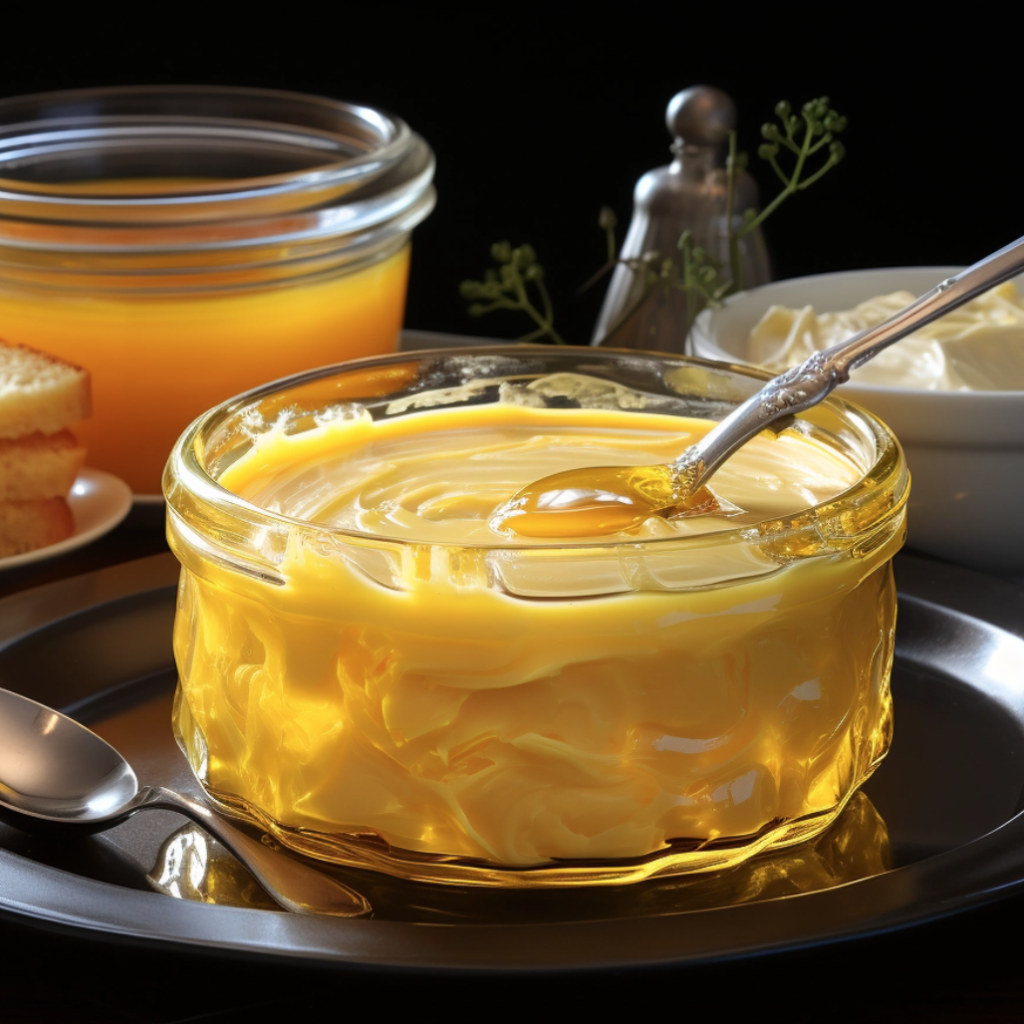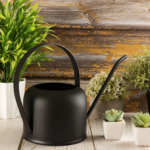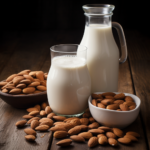Hey there, hair enthusiasts! We all know ghee as the magical golden goodness that elevates everything from naan to dal. But did you know this ancient elixir might not be all sunshine and rainbows for your precious locks?
Yes, you read that right! While ghee boasts amazing benefits like nourishing roots, promoting dazzling shine, banishing dryness, nourish follicles, promote scalp health, and add a healthy dose of shine, it can also harbor some hidden drawbacks. Don’t worry, we’re not here to burst your bubble. Instead, we’re diving deep to explore the potential side effects of using ghee on your hair, so you can navigate this hair care journey with confidence!
So, before you embark on this haircare adventure, let’s unveil the potential side effects of ghee on hair. Is it a mane-taming miracle or a recipe for disaster? Read on, brave explorers, and discover the truth behind the golden oil!
Side Effects of Ghee on Hairs

Ghee, the golden nectar of Indian kitchens, boasts a loyal following for its culinary magic. But what about its foray into the world of hair care? While whispers of its nourishing prowess abound, whispers of potential pitfalls lurk too. So, before you slather your scalp in this ancient elixir, let’s unveil the side effects of ghee on hair:
1. Greasy Hairs
Ghee’s rich texture, while moisturizing, can be its downfall. Applying too much, especially on those with naturally oily hair or scalps, can lead to a greasy, weighed-down look. Imagine limp, lackluster strands instead of the promised healthy shine – not the desired outcome!
2. Clogged Pores
Improperly removed ghee can clog your hair follicles, creating the perfect breeding ground for scalp acne or folliculitis. These tiny bumps and inflamed spots are not just unsightly, but can be itchy and uncomfortable.
3. Tangled Mane, Styling Pain: More Like Ghee-loo, Not Hello!
Ghee’s stickiness can be a nightmare for detangling. Imagine fighting through matted strands, struggling to style your hair – not the effortless flow you deserve. This can lead to frustration and even hair breakage.
4. Hair Loss
While some swear by ghee for hair growth, others report an unsettling truth – hair loss. This appears to be linked to individual sensitivity and improper application. Remember, more isn’t always better!
5. Unpleasant Odor
Ghee’s distinct aroma, while pleasant to some, can linger in your hair, not always in a good way. And forget using heat styling tools like straighteners or curlers after applying ghee – the risk of burning your hair is real!
The Takeaway: Ghee with Caution
Ghee can be a beneficial hair treatment, but knowing its limitations and using it wisely is key. Start small, focus on the scalp, use clarifying shampoos, and always patch test for allergies. If you have oily hair or scalp concerns, explore alternative oils. Remember, healthy hair starts with informed choices!
Bonus Tip: "Ghee's potential benefits don't outweigh the risks for everyone. Explore alternative oils for your hair type and consult a professional for personalized advice."
Minimizing the Risks of hair damage by using ghee
So, ghee might not be the universal hair hero we initially hoped for. But before you banish it to the back of the pantry, let’s explore how to minimize the risks and rock healthy, happy hair with ghee:
1. Know Thy Hair: Not all hair types are created equal, and ghee’s effects depend on your individual needs. If you have naturally oily hair, ghee might not be your best friend. Consider lighter oils like jojoba or grapeseed for a nourishing boost without the greasy weigh-down.
2. Less is More: Remember, a little goes a long way! Start with a pea-sized amount of melted ghee and focus on your scalp, massaging it gently to promote circulation. Avoid saturating your lengths; stick to the ends only if they’re particularly dry. Gradually increase the amount if needed, but always prioritize a light touch.
3. Squeaky Clean is Key: Ghee’s wonderful moisturizing properties can also leave behind residue. Make sure you use a clarifying shampoo to thoroughly remove any leftover ghee without stripping your hair’s natural oils. Double cleansing might even be necessary, especially if you use a generous amount.
4. Patch Test: Safety First: Before slathering your entire head in ghee, perform a patch test on your inner arm. Apply a small amount and wait 24 hours to check for any allergic reactions. It’s better to be safe than sorry!
5. Seek Expert Guidance: If you have pre-existing scalp conditions or any doubts about using ghee on your hair, don’t hesitate to consult a dermatologist. They can provide personalized advice based on your specific needs and recommend alternative treatments if necessary.
Remember: Ghee can be a valuable addition to your hair care routine, but it's crucial to be mindful and use it wisely. By understanding your hair type, starting small, cleansing thoroughly, and prioritizing your safety, you can unlock the benefits of ghee without experiencing its less desirable side effects. Now go forth and conquer your mane with confidence!
Read Also – Fermented Foods in India
Benefits of using desi ghee for hair
While there is limited scientific research directly focusing on its benefits for hair, some potential advantages are supported by its composition and anecdotal evidence. Here are some of the claimed benefits:
Moisturizing and Conditioning:
- Rich in fatty acids, especially butyric acid, which can help hydrate and nourish the scalp and hair follicles.
- May prevent dryness and frizz, leading to softer and more manageable hair.
Potential to Promote Hair Growth:
- Contains vitamins A, D, E, and K, which may contribute to healthy hair growth.
- Some fatty acids in ghee might stimulate hair follicles.
Anti-inflammatory Properties:
- Might be helpful for those with scalp conditions like dandruff or itching due to its potential anti-inflammatory properties.
Other Potential Benefits:
- Some suggest it can add shine and reduce split ends.
- As a natural product, it can be an alternative to chemical-based hair care products for some individuals.
Important Notes: - Most of the evidence for these benefits comes from anecdotal reports and traditional practices, not rigorous scientific studies. - Individual results may vary based on hair type, scalp condition, and application methods. - There is a possibility of allergic reactions, so doing a patch test before applying it to your hair is recommended. - It's crucial to use high-quality, pure desi ghee for hair care.
conclusion
So, have we dethroned ghee from its hair care pedestal? Absolutely not! Ghee can still be a potent tool in your hair care arsenal, but like any powerful ingredient, it requires responsible use and understanding its limitations.
Potential benefits: Ghee shines in nourishing roots, combating dryness, and adding enviable shine.
Possible side effects: Beware of greasiness, clogged pores, tangles, and even hair loss with improper use.
Key to success: Know your hair type, be sparing, wash thoroughly, and prioritize other oils for oily hair.
Embrace Individuality:
Ghee’s impact varies person to person. Patch test, consult a dermatologist for personalized advice, and don’t be afraid to experiment to find what works best for your unique mane.
The Final Verdict:
Ghee doesn’t have to be an all-or-nothing choice. With awareness and responsible application, it can be a valuable addition to your hair care routine. So, unleash your inner hair alchemist, explore, and discover the golden truth for your own locks!
Share Your Ghee Tales:
Have you tried ghee on your hair? Did it transform your mane or leave you wanting more? Share your experiences and questions in the comments below! Let’s build a community of informed hair care adventurers!
Read Also – Calories in Cream Bun
FAQs
Does ghee make hair softer?
There’s some evidence that ghee might make hair softer, but it’s important to consider both the potential benefits and drawbacks:
Does ghee make hair thicker?
While there is anecdotal evidence suggesting that ghee, clarified butter used in Indian cuisine, may promote hair health due to its moisturizing properties and potential nutrient content, scientific evidence directly linking it to hair thickness is limited. Ghee contains vitamins A, E, and D, which could benefit hair health, but its impact on thickness likely depends on individual factors like diet, genetics, and overall hair care routine.
can you consume ghee daily to benefit you hairs?
Yes, consuming ghee daily can potentially benefit your hair health. Ghee is rich in vitamins A, D, E, and K, as well as essential fatty acids, which nourish the scalp and promote hair growth.







